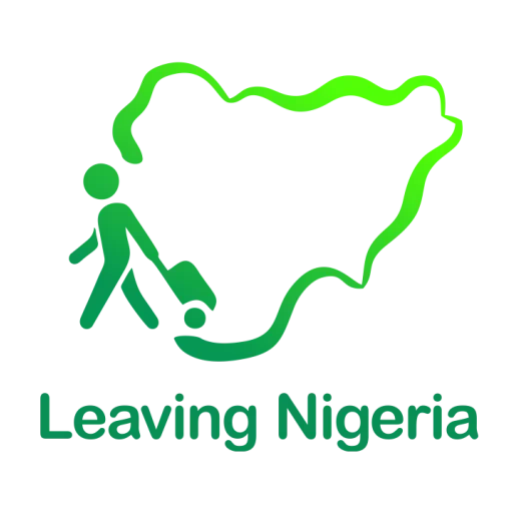For many Nigerian travellers, students, and aspiring migrants, getting a visa can feel like navigating a battlefield. While some countries offer Nigerians convenient options like e-visas or visa-on-arrival, others make entry extremely difficult. These countries are known for having some of the hardest visas to obtain, marked by overwhelming requirements, long processing periods, and consistently high rejection rates.
Understanding which destinations have the hardest visas for Nigerians is crucial for making informed travel plans and preparing effectively.
Whether you’re applying for a student visa, tourist visa, or work permit, it’s essential to understand which countries pose the biggest challenges—and why. In this guide, we break down the top 10 hardest visas to get as a Nigerian, highlighting the key hurdles.
1. United States (USA) Visa
Cost: Over ₦270,000 (approx. $185), non-refundable regardless of outcome.
Many Nigerians still hold on to the American dream, but accessing the U.S. isn’t easy. Plus, the recent immigration rules are not making it any easier. Whether for school, business, or vacation, the U.S. visa process is arguably the hardest visa to get as a Nigerian.
According to the U.S. State Department, Nigeria consistently ranks among countries with the highest non-immigrant visa rejection rates. You can also check “11 Strategies for a Successful U.S. Visa Interview (F-1 and J-1 Applicants) for guidance on navigating and having better success obtaining a USA visa.
Here are some of the reasons the USA visa ranks high as one of the hardest visas for Nigerians to obtain:
- Highly detailed DS-160 application form
- Rigorous in-person interviews in Abuja or Lagos
- Need to prove “strong ties” to Nigeria
- Very high rejection rate for tourist and student visas
2. Canadian Visa
Cost: CAD $100–$150 (₦90,000–₦130,000), plus biometrics and health check charges.
Canada has a reputation for being immigrant-friendly, but it ranks high among the hardest visas to get as a Nigerian, especially for tourists and students. As stated by Business News Nigeria, Nigerians are among the highest number of work permit rejections in recent quarters.
It is difficult because applicants are often denied for insufficient proof of return intentions or weak financial documentation, even when requirements are met. Also, here are some of the reasons:
- Long processing times (often 3–6 months or more)
- Police clearance, medicals, and biometrics
- Mandatory proof of ties to Nigeria and financial stability
3. United Kingdom (U.K.) Visa
Cost: ₦150,000–₦500,000 depending on visa category and processing speed.
After Brexit, the U.K. became more selective with visa issuance, and Nigerians often face rigorous screening and delays, especially for visitor and student visas. Once one of the easiest visas to get as a Nigerian citizen, it is increasingly becoming the hardest visa to get as a Nigerian student.
Even for short visits, you must provide extensive documentation, including proof of income, return flights, accommodation, and financial stability. Any perceived risk of overstaying can lead to refusal.
As captured by the Guardian, between June 2023 and June 2024, over 225,000 Nigerian visa applications were processed, generating more than £34 million in fees, but with a sharp drop in approvals. In Q4 2022, only 1 in 31 Nigerian study visa applicants was denied; by Q2 2023, it rose to 1 in 8 being rejected. In the year ending March 2024, the U.K. Home Office reported a 21% refusal rate across all nationalities, with Nigerians among the hardest hit.
Additionally, the interviews can also be intimidating and intrusive.
- Biometric enrollment and medical screening
- Proof of sufficient funds for the entire stay
- Deep scrutiny of travel history and purpose
4. Schengen Visa (Europe)
Cost: €80 (~₦70,000+), excluding agent or travel service fees.
The Schengen visa, which gives access to 27 countries, is one of the hardest visas to get as a Nigerian due to its stringent rules and strict embassy procedures. Data has shown that France and Germany record some of the highest rejection rates for Nigerian applicants.
Also, Vanguard Nigeria reported that Nigeria recorded a 45.9% Schengen visa rejection rate in 2024, up from 40.8% in 2023, placing the country among the top three globally and fourth in Africa.
Every detail must align, from your bank statements and insurance to hotel bookings and itineraries. Even a single missing document or perceived inconsistency leads to rejection. Also, the Schengen visa demand:
- In-person submission at embassies (e.g., France, Germany, Italy)
- Six months’ bank statements, proof of employment, return plans
- High cost with no refund upon denial
READ MORE: 11 Fastest Countries to Get Citizenship as an Immigrant
5. New Zealand Visa
Cost: NZD $246+ (₦150,000+), with additional document preparation costs.
New Zealand might seem off the radar, but its visa requirements make it among the most difficult visas for Nigerians. Even with sponsorship or employment, applicants must prove detailed financial independence, accommodation, and a clear travel purpose. Also, it requires:
- Invitation or job offer for most visa types
- Lengthy processing and vague rejection reasons
- Limited embassy presence in West Africa
6. Australian Visa
Cost: AUD $620+ (₦350,000+), excluding biometrics and health exam fees.
Australia is an attractive destination for study and skilled migration, but its visa process ranks among the hardest visas to get as a Nigerian. It is difficult because applicants face exhaustive checks, including medical exams, police clearances, and proof of financial and educational credentials. Long delays are common, and it requires:
- Documented education background and English proficiency
- High financial requirements and proof of income
- Thorough background and intent-to-return screening
7. Japan Visa
Cost: ₦25,000–₦35,000 depending on category, plus supporting document costs.
Although Japan is a peaceful and technologically advanced country, its visa system is strict and unforgiving, particularly for Nigerians. You’ll need a formal invitation (for business or tourism), extensive proof of employment and income, a round-trip ticket, and confirmed accommodation to get a Japanese visa. Additionally, the Japanese embassy reserves the right to reject without a detailed explanation, and applicants are judged on the consistency of paperwork and travel history
8. South Korean Visa
Cost: ₦40,000–₦60,000
South Korea is becoming popular among Nigerian students and tech workers, but its visa process is complex and tightly regulated. As an applicant, you must provide an invitation or sponsorship letter and be ready for in-person interviews. Financial capability and intent to return are heavily scrutinized. Additionally, detailed education and financial history are required, and embassies often delay approvals without clear updates.
9. United Arab Emirates (UAE) Visa
Cost: ₦150,000–₦200,000 (Non-refundable even when rejected)
The UAE, particularly Dubai, was once a go-to destination for Nigerians. However, recent policy shifts have made UAE visas one of the hardest for Nigerians to obtain due to ongoing diplomatic tensions and shifting immigration policies.
Over the past few years, several visa bans and restrictions have made entry to the UAE nearly impossible for many Nigerians, especially for tourist purposes. In October 2022, the UAE officially suspended visa issuance for citizens from 20 African countries, including Nigeria. Although the ban was temporarily lifted in early 2023, reports suggest many applicants still face non-responses or silent rejections.
A 2023 report by BusinessDay Nigeria noted that Nigerians were the largest group affected by the UAE’s visa ban, with thousands stranded after their applications were denied or delayed without explanation.
Even when visas are granted, Nigerians have been turned back at the Dubai airport, despite valid visas, due to updated (and often unpublished) entry policies.
According to the Nigerian Ministry of Foreign Affairs (Nov 2023), ongoing efforts to restore visa issuance have been hampered by the UAE’s internal immigration review and concerns over misuse of visitor visas.
10. South African Visa
Cost: ₦25,000–₦40,000 for a standard visitor visa
Though it’s on the same continent, South Africa’s visa requirements for Nigerians are surprisingly strict, involving more red tape than many expect. You’ll need certified documents, medical clearances, and even a yellow fever card to get a South Africa visa. Processing is slow, and rejection rates remain high. Additionally, it demands:
- Police report and full financial documentation
- Embassy appointments are limited and competitive.
READ MORE: Top 10 Jobs Expected to Be in High Demand by 2030
Frequently Asked Questions (FAQs)
Q: Which country is easier for Nigerians to get visas to?
A: If you want to travel with minimal visa stress, countries like Kenya, Rwanda, Ghana, and Seychelles are among the easiest for Nigerians. These nations offer visa-free access or visa-on-arrival, especially for tourism or short business trips. Many of these countries are part of ECOWAS or have bilateral agreements that promote intra-African travel, making them attractive and accessible destinations for Nigerian passport holders. You can also check “Top 3 Easiest Countries to Get Permanent Residency in 2025.”
Q: Is a Nigerian visa one of the hardest to get for foreigners?
A: For many Westerners, obtaining a Nigerian visa can be pretty complicated. Due to diplomatic reciprocity, Nigeria often imposes similar restrictions on countries, making it difficult for Nigerians to get visas. As a result, applicants may face long processing times, in-person interviews, strict documentation checks, and security clearance. While not impossible, the process can be one of the hardest for citizens of nations like the U.S. or the U.K.
Q: Which countries have visa-free agreements with Nigeria?
A: Several West African nations under the ECOWAS (Economic Community of West African States) agreement offer Nigerians visa-free travel. This includes countries like the Benin Republic, Ghana, Liberia, Togo, Senegal, and Sierra Leone. These agreements aim to enhance regional integration and ease movement across African borders.
Q: Which country do Nigerians immigrate to the most?
A: The most popular immigration destinations for Nigerians are the United Kingdom, Canada, and the United States. According to global migration data, these three countries have the highest numbers of Nigerian expatriates due to education, employment, and better quality of life opportunities. Even though these countries also issue some of the hardest visas to get as a Nigerian, many applicants continue to pursue them for long-term settlement.
Q: Which African country is visa-free to Canada?
A: As of now, no African country, including Nigeria, has visa-free access to Canada. All travellers from Africa must apply for a visa before entry, and the process involves detailed documentation, biometrics, and proof of financial capacity and intent to return. Canada has one of the most stringent visa systems, especially for applicants from developing countries, so Canada remains one of the hardest visas to get as a Nigerian.
Preparation Is Key
The list of the hardest visas to get as a Nigerian reminds us that the dream of global travel or study comes with real barriers. But knowledge is power. Understanding these challenges beforehand allows applicants to plan better, prepare stronger documents, and increase their chances of approval.
If you’re applying soon, invest time in research, be honest in your application, and consult licensed immigration advisors if needed. Your travel dreams are valid—just don’t be caught unprepared.
Discover more from Leaving Nigeria
Subscribe to get the latest posts sent to your email.





